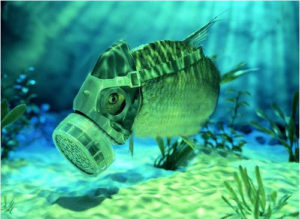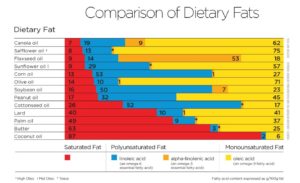
An impressively comprehensive systematic review 1 has just been published by the Cochrane Heart group. They analysed the results of seventy-nine randomised trials involving 112,059 people to see whether omega-3 supplements really do help to prevent/treat heart disease as the manufacturers and many other responsible medical/nutritional authorities have been claiming for years. But do fish and EPA 2 /DHA 3 supplements work, or are they just another form of snake oil 4 ?
The authors’ conclusions make their opinions crystal clear:
“We can be confident in the findings of this review which go against the popular belief that long-chain omega 3 supplements protect the heart. This large systematic review included information from many thousands of people over long periods. Despite all this information, we don’t see protective effects….
“…The review provides good evidence that taking long-chain omega 3 (fish oil, EPA or DHA) supplements does not benefit heart health or reduce our risk of stroke or death from any cause. The most trustworthy studies consistently showed little or no effect of long-chain omega 3 fats on cardiovascular health.”
This is the most extensive systematic assessment of effects of omega-3 fats on cardiovascular health to date.
Previous suggestions of benefits from EPA and DHA supplements appear to spring from trials with higher risk of bias.
ALA from plants
There’s low-quality evidence suggesting that ALA may slightly reduce CVD event risk, CHD mortality and arrhythmia. ALA 5 converts to EPA/DHA in our bodies and comes from plants (including flaxseeds, chia seeds, walnuts etc), as discussed in detail in previous blogs 6 7 , and is the safest and best source of omega-3 fatty acids. There are a small number of people who have a reduced ability to convert ALA to EPA/DHA and may need to take additional supplementation. Algae is the best source of EPA/DHA if you find that you are one of this small percentage of low-converters. Dr Greger gives some sound advice on this in a short video 8 .
Is fish okay for omega-3?
Whilst the authors comment briefly on oily fish, stating that: “…it is unclear from the small number of trials whether eating more oily fish is protective of our hearts” , they are careful to add the (by-now) usual warnings about the additional risks involved in consuming fish:
“...reports of high levels of various toxic compounds such as mercury, dioxins and polychlorinated biphenyls (PCBs) in oily fish and fish oils are concerning 9 10 11 12 . These are all fat soluble and accumulate over time in the body, so harms may be exhibited only after long-term fish consumption or supplementation with fish oils. Animal intervention studies and human cohorts who have suffered accidental exposure to dioxins and PCBs suggest that pre-natal exposure may cause sub-fertility problems, and adult exposures may lead to an excess of total cancers 13 .
“Human cohorts exposed to high levels of mercury exhibit neurological problems12 . As many people eat oily fish once or twice a week or take fish oil supplements, it is important to explore the potentially harmful effects of fish-associated omega-3 intake. It is also possible that omega-3 fats themselves may exhibit harm, for example through extension of bleeding times or suppression of normal immune responses 14 .”
It’s just as well that they mention some of the many health problems associated with eating fish – especially now that we have turned our oceans, rivers and lakes into cesspits for all our toxic human waste products 15 . I’ve explained in more detail elsewhere 16 why it’s probably best NOT to consume fish or fish products of any sort.
Eat vegetables instead
A Daily Telegraph article 17 covering this research includes the following quote from Tim Chico, Professor of Cardiovascular Medicine and Honorary Consultant Cardiologist, University of Sheffield:
“Such supplements come with a significant cost, so my advice to anyone buying them in the hope that they reduce the risk of heart disease, I’d advise them to spend their money on vegetables instead.”
Joe’s comments
These latest systematic review findings about the ineffectiveness (and possible harmful effects) of fish oil and EPA/DHA supplements come as no surprise. It’s reassuring, though, to see mainstream media covering the research with such directness – indeed, BBC News covered the article with an unusually powerful headline: “Fish oil supplements for a healthy heart ‘nonsense’.” 18 .
It’s worth noting that there’s always some “however” or “but” when it comes to talking about any perceived benefits of animal foods. This is something that you don’t often get when talking about whole plant-foods. As I pointed out in an earlier blog, when you’re looking around for the causes of disease, animal foods are almost always the smoking gun 19 .

References
- Omega-3 fatty acids for the primary and secondary prevention of cardiovascular disease. Asmaa S Abdelhamid, Tracey J Brown, Julii S Brainard, Priti Biswas, Gabrielle C Thorpe, Helen J Moore, Katherine HO Deane, Fai K AlAbdulghafoor, Carolyn D Summerbell, Helen V Worthington, Fujian Song, Lee Hooper. First published: 18 July 2018. Cochrane Heart Group. DOI: 10.1002/14651858.CD003177.pub3. [↩]
- Wikipedia: EPA or Eicosapentaenoic acid [↩]
- Wikipedia: DHA or Docosahexaenoic acid [↩]
- What is Snake Oil? Wikipedia: Snake Oil definition. [↩]
- Wikipedia: alpha linolenic acid or ALA [↩]
- Non-Fish Sources of Omega-3 [↩]
- Chia Seeds To The Rescue Of Type 2 Diabetics [↩]
- Should We Take EPA & DHA Omega-3 For Our Heart? Michael Greger M.D. FACLM March 7th, 2016 Volume 29 [↩]
- Food Standards Agency UK. Dioxins and PCBs in the UK diet: 1997 Total diet study samples. Food Surveillance Information Sheet. Number 4/00; 2000. [FSIS 4/00] [↩]
- Liem AKD, Theelen RMC. Dioxins: Chemical Analysis, Exposure and Risk Assessment. Utrecht: Universiteit Utrecht, 1997. [ISBN 90 393 2012 8] [↩]
- MAFF UK. Concentrations of metals and other elements in marine fish and shellfish. Food Surveillance Information Sheet no.151; 1998. [FSIS 151] [↩]
- US Food, Drug Administration. What You Need to Know About Mercury in Fish and Shellfish. www.fda.gov/food/foodborneillnesscontaminants/metals/ucm351781.htm (accessed May 2018). [↩] [↩]
- Joint FAO/WHO Expert Committee on Food Additives. Summary of the fifty-seventh meeting of JEFCA, 2001. http://apps.who.int/iris/bitstream/handle/10665/42578/WHO_TRS_909.pdf?sequence=1. [↩]
- U. S. Food, Drug Administration. Center for Food Safety and Applied Nutrition, Office of Nutritional Products. Labeling, and Dietary Supplements: Letter Regarding Dietary Supplement Health Claim for Omega-3 Fatty Acids and Coronary Heart Disease (Docket No. 91N-0103). www.fda.gov/Food/LabelingNutrition/ucm073992.htm#cardio 2004. [↩]
- Scripps Institution of Oceanography: Study Finds Toxic Pollutants in Fish Across the World’s Oceans. Scripps researchers’ analysis shows highly variable pollutant concentrations in fish meat. Jan 28, 2016. [↩]
- But I thought Fish Was Good For Me! [↩]
- The Telegraph: Buy more vegetables instead of omega-3 supplements to improve heart health, report says . 18th July 2018. [↩]
- BBC News: Fish oil supplements for a healthy heart ‘nonsense’. 18th July 2018 [↩]
- Animal Foods Are The Smoking Gun [↩]

